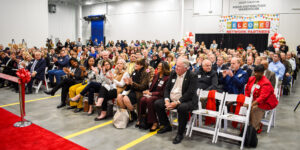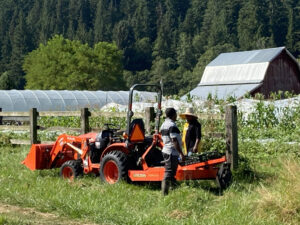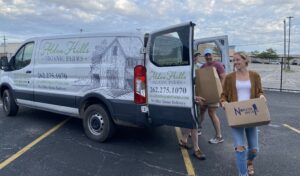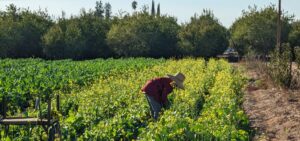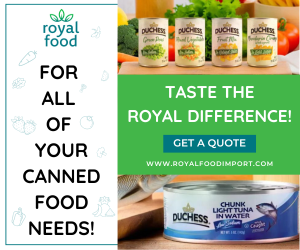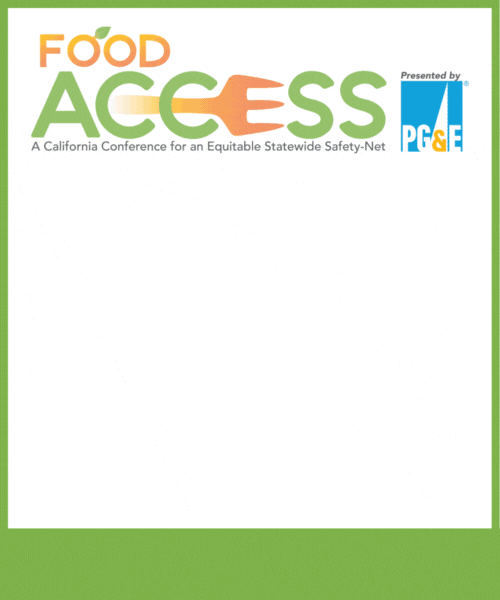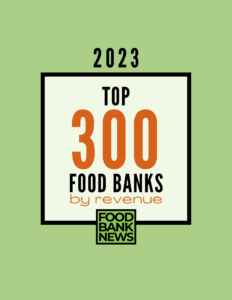In only three months, an initiative by Wash.-based Coastal Harvest to deliver culturally appropriate food to Mexican and indigenous Central American communities grew from 25 to 600 boxes a month.
Started in February, the program initially sought to serve the clientele of a single nonprofit supporting Latinos and indigenous people in the South Puget Sound area. Before long, however, requests began to pour in from every direction for the specialty boxes, which contain about 13 pounds of culturally familiar Latino food.
“Before we knew it, we were making more and more and more and more,” said Brent Hunter, Executive Director of Coastal Harvest, an independent food bank serving more than 60 agencies in seven counties in western Washington.
Coastal Harvest is one of a growing number of food banks working to address populations that have long been underserved by the charitable food system. Black, Latino, Native American and Pacific Islander communities experience food insecurity at rates two to three times higher than that of white individuals, according to Feeding America. Yet few accommodations have been made in the past to specifically address those groups.
Now more food banks are making up for lost time, driven in many cases by the inequities they observed during the pandemic. Food Bank of the Rockies, for example, is distributing more than one million pounds of culturally relevant food to ethnic groups in all 53 counties of its operating area. Second Harvest Heartland, meanwhile, is investing more than $13 million over five years into various equity initiatives, including sourcing culturally specific food and purchasing food from BIPOC businesses.

Coastal Harvest’s foray into more equitable food distribution began when a local nonprofit, CIELO, began searching for emergency food to feed the growing numbers of migrants coming to Washington to work in the fishing, forestry and farming industries.
Hunter began sourcing specialty food items from local minority-owned businesses and other providers, expanding the Coastal Harvest-CIELO program now to 150 boxes per month.
“Brent is very knowledgeable about the types of foods our clients love,” said Esteban Gaspar, Community Navigator of Direct Services for CIELO. “People are so appreciative of having foods that make them feel like they’re home.”
Food programs from all seven counties that Coastal Harvest serves are now distributing the boxes. A Latino preacher regularly picks up a vanload to personally make home deliveries to his migrant parishioners, Hunter said.
“The boxes are now being handed out to 85% of our client programs. That is over 50 locations,” he said. “We have allocated a specific section of the distribution center just for Latino foods.”
Each month, the food box contents might include corn flour, corn husks, tortillas, dried peppers, dried red or black beans, rice, canned meats, fresh produce, seasonings, pasta, peanut butter, and more. Hunter is looking to add other culturally familiar items, such as dairy products that are common in Mexico and Central America.
“We try to change things up when we can, but some of those things – like the corn flour and the beans – those are staples,” he says. “So we’re working to keep those supply chains going. I’m bringing the corn flour in by the pallet.”
Volunteers from CIELO and a local Dutch Brothers coffee location gather each month to fill the boxes, which takes about 42 man-hours per session.
Demand is still growing, Hunter said, with food programs from outside his organization’s area starting to make inquiries.
“I’ve had hints of donors for this program, too, so that’ll be great once that gets up and running,” he said. “It’s just so wonderful to be a part of this and serve a community of people that so often gets overlooked.” – Kat Bryant
Kat Bryant is a freelance writer based in Washington state. Reach her at copykat.bryant@gmail.com.
PHOTO ABOVE: Esteban Gaspar of CIELO (second from left) and other volunteers pack specialty food boxes for Latino and indigenous Central American migrant workers.
Like what you’re reading?
Support Food Bank News
This article was made possible by the readers who support Food Bank News, a national, editorially independent, nonprofit media organization. Food Bank News is not funded by any government agencies, nor is it part of a larger association or corporation. Your support helps ensure our continued solutions-oriented coverage of best practices in hunger relief. Thank you!
Connect with Us:

